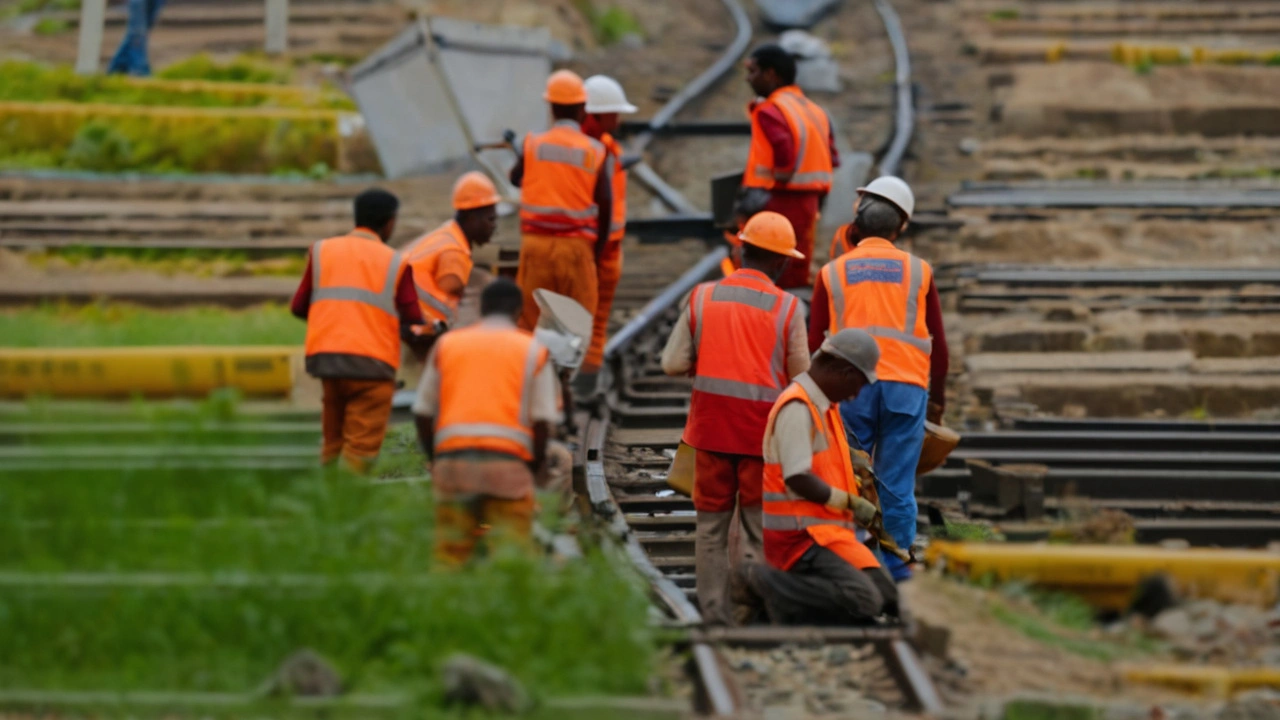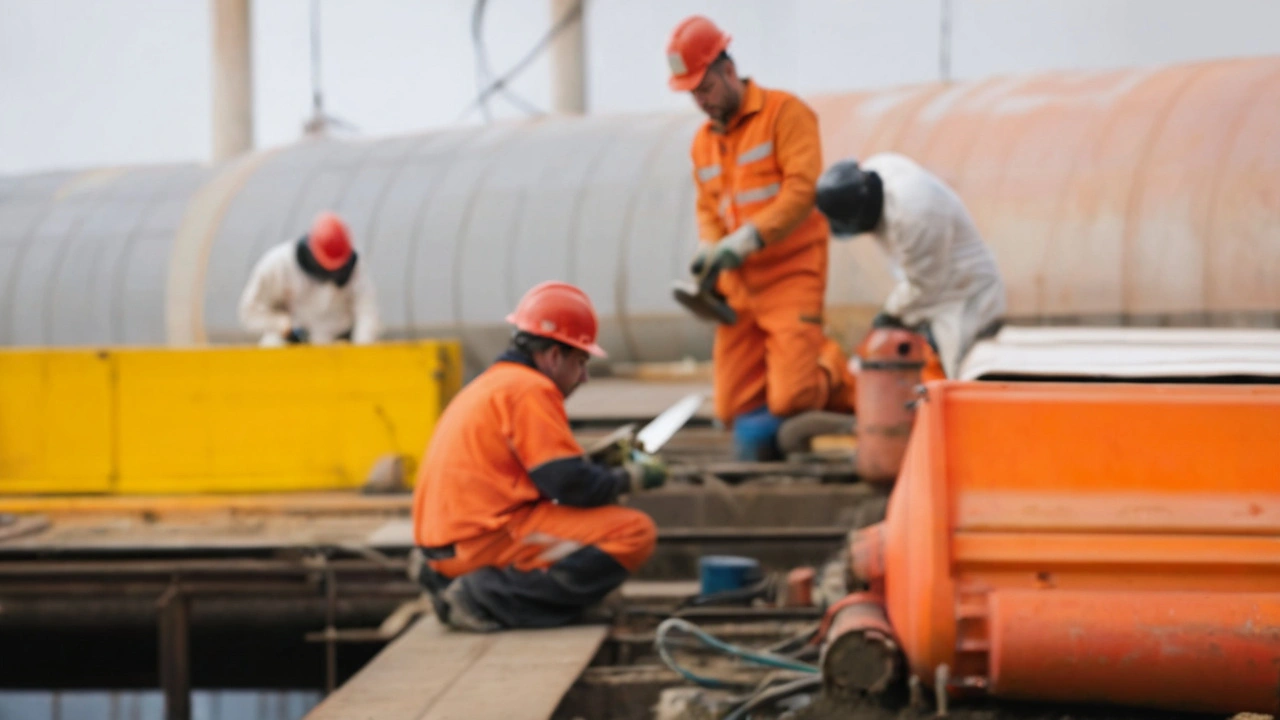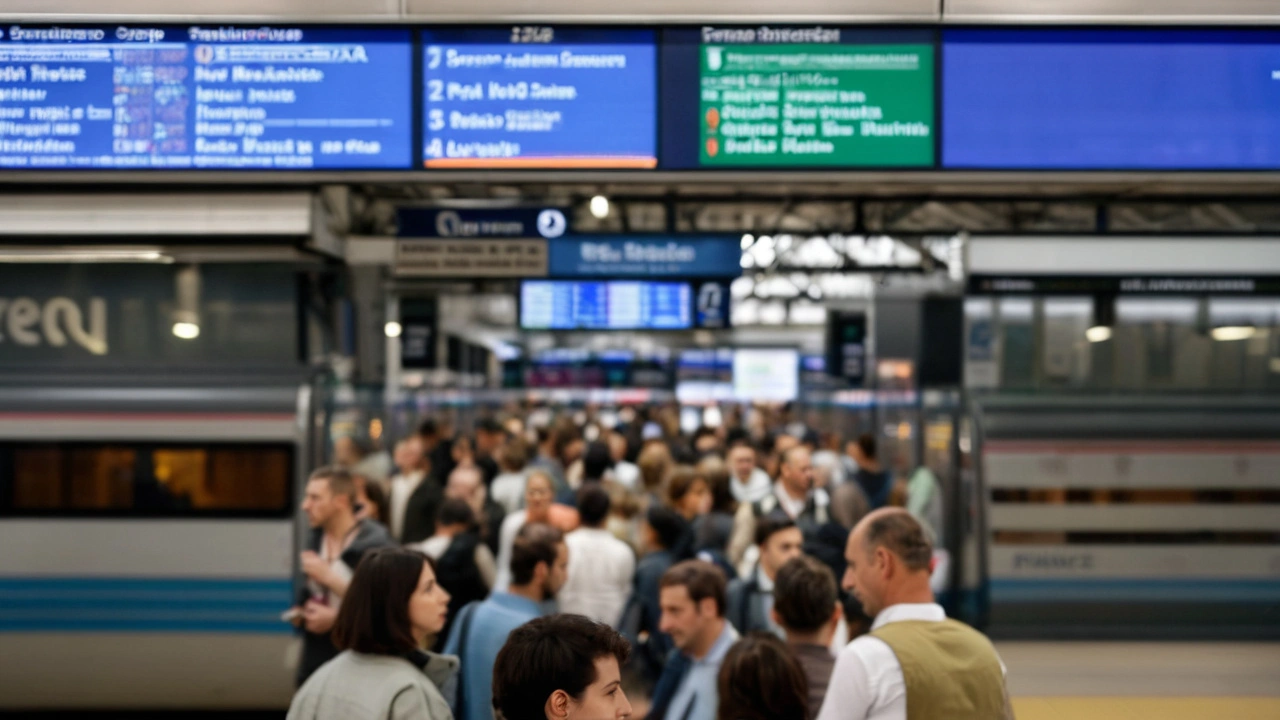When Rail Networks Became Battlefields: The Coordinated Attack on France’s High-Speed Rail System
On July 26, 2024, just hours ahead of the much-anticipated opening ceremony for the Paris 2024 Olympics, France’s high-speed rail network came under an unprecedented and coordinated arson attack. Described as 'acts of sabotage' by French Prime Minister Gabriel Attal, these attacks targeted crucial bifurcation points across the network, bringing one of Europe’s premier rail systems to its knees. The ramifications were immediate and far-reaching, with major delays disrupting both local and international travel.
Understanding the Scale and Impact of the Attack
The sheer magnitude of the sabotage was evident as trains were delayed by hours, causing chaos for travelers and dampening the excitement surrounding the Olympic opening ceremony. Eurostar journeys, which connect London with Paris, and other local rail lines experienced massive disruptions. Thousands of athletes, visitors, and daily commuters found themselves stranded, their plans upended, and uncertainty looming large. The careful orchestration of these attacks at pivotal points in the rail network indicated the involvement of individuals or groups with a sophisticated understanding of rail infrastructure.
Speculation Runs Rampant: Who’s Behind the Sabotage?
Despite the immediate condemnation from officials and the palpable impact on daily life, the question of who was responsible for these acts of sabotage remains unanswered. Prime Minister Gabriel Attal was quick to denounce conjecture, urging caution against jumping to conclusions. Nonetheless, various theories have surfaced, each as plausible as the next.
One controversial claim came from Israel’s foreign minister, Israel Katz, who suggested without evidence that the attacks were carried out by Iranian proxies. This assertion has not been substantiated and has added a layer of geopolitical tension to the already complex investigation. Another theory points to Moscow, particularly with the recent arrest of Kirill Griaznov, a Russian national suspected of plotting a 'large-scale' destabilization operation targeting France.
Historical Context and Anarchist Involvement
Adding another dimension to the investigation is the potential involvement of anarchist groups. There is historical precedence for this, as similar arson attacks aimed at sabotaging the rail network have been attempted in the past. These previous incidents, though smaller in scale, share a common modus operandi, suggesting that this could be the work of experienced saboteurs with a deep-seated anti-establishment agenda.

The Aftermath: Navigating Through the Chaos
While the attacks caused massive disruptions, the French government and rail authorities have been working tirelessly to restore normalcy. Travel interruptions have significantly affected Eurostar services and other local trains, stranding countless passengers across the country. Authorities are assessing the overall impact on travelers, especially athletes and officials heading to the Olympic events.
Security has been ramped up across the rail network with extensive measures being implemented to prevent further incidents. Additional law enforcement officers are being deployed, and surveillance has been intensified to monitor any suspicious activities. Prime Minister Attal assured the public that all necessary steps are being taken to ensure the safety of travelers and to bring those responsible to justice.

Looking Ahead: Balancing Security with Freedom
The attacks have underscored a critical vulnerability in France’s infrastructure, raising questions about future security measures and the balance between protecting public spaces and maintaining civil liberties. The Paris 2024 Olympics, meant to be a grand celebration of athletic prowess and international unity, began under the shadow of this security breach. As investigations continue, it is clear that understanding the motives and the identities of the perpetrators will be pivotal in preventing similar attacks in the future.
This incident serves as a stark reminder of the complex interplay between national security, international relations, and the persistent threat posed by those who wish to disrupt peace and stability. As France and the global community look ahead, it is imperative to remain vigilant and resilient in the face of such challenges.

The Broader Implications
For travelers and citizens alike, the recent events have sparked a dialogue on the safety and reliability of public infrastructure. Many are calling for a thorough overhaul of security protocols, not just for rail networks but for other critical public utilities as well. The need for increased investment in cyber and physical security systems has never been more apparent, with technology playing a crucial role in detecting and mitigating future threats.
As France takes steps to strengthen its resilience, the lessons learned from this incident will likely shape future policies and strategies. The global community watches closely, hopeful that measures taken will restore confidence and ensure that such large-scale disruptions remain a rarity.
The coming weeks and months will undoubtedly reveal more details about the nature of the attacks and the identities of those involved. Until then, France remains on high alert, ready to confront and overcome the challenges posed by these tumultuous times.

Alex Soete
July 27, 2024 AT 22:39Man, the timing of that sabotage was insane-right before the Olympics kicking off. It really shows how vulnerable even the most high‑tech rail systems can be when someone knows the chokepoints. Props to the crews working round the clock to get things back on track; that kind of grit keeps the whole event moving. Let's hope the lessons learned make future travel smoother for everyone.
Cara McKinzie
August 2, 2024 AT 17:33OMG, totl meltdwn!
Joseph Conlon
August 8, 2024 AT 12:26Honestly, when you look at the pattern of the attacks, it's hard not to see a deliberate attempt to exploit systemic blind spots that have been ignored for years. The coordination suggests that the perpetrators did their homework, mapping out the rail network's critical junctions with a precision that borders on obsessive. One could argue that the timing was chosen not only for maximum disruption but also to send a political message, given the Olympics' global spotlight. It's a stark reminder that infrastructure security can't be an afterthought in a world where information travels faster than any train. The fact that several high‑speed lines were knocked offline indicates that the saboteurs had either insider knowledge or access to detailed schematics. In the past, similar arson attempts have been linked to fringe anarchist cells, yet the scale here dwarfs anything we've seen before. That raises the question of whether this is a lone wolf scenario or a coordinated effort by a larger network. The involvement of foreign actors, as some officials hinted, only adds layers of complexity. While the French government is quick to condemn speculation, the lack of transparent data fuels the rumor mill. What we do know is that the response teams managed to contain the damage in a fraction of the expected downtime, which is commendable. However, the ripple effect on Eurostar and other international services exposed how interconnected our transport systems truly are. Thousands of athletes and fans faced delays, turning what should have been a celebratory journey into a logistical nightmare. The psychological impact on travelers shouldn't be underestimated; the sense of vulnerability can linger long after tracks are repaired. Moreover, the incident spotlights the need for robust cyber‑physical safeguards that can detect and neutralize threats before they manifest physically. Investing in AI‑driven monitoring, coupled with on‑ground intelligence, could be a game‑changer. The post‑incident security upgrades announced by the French authorities are a step in the right direction, but they must be part of a broader, harmonized European strategy. Until then, we might see more attempts to test these defenses, especially as the world watches high‑profile events. In short, this attack is a wake‑up call urging policymakers, engineers, and security experts to rethink the balance between openness and protection in public infrastructure.
Mohit Singh
August 14, 2024 AT 07:19The whole thing feels like a scene out of a thriller, but the reality is far more unsettling. Whether it's a lone agitator or a state‑backed group, the aggression behind the arson can't be ignored.
Damian Liszkiewicz
August 20, 2024 AT 02:13Great analysis, everyone. 🌍 It’s fascinating (and a bit scary) how a single point of failure can cascade across an entire continent’s transport. Let’s keep the conversation constructive and think about solutions, not just blame. 😊
Angela Arribas
August 25, 2024 AT 21:06There were several missing commas, for example after "however" in the third paragraph. Also, "arson attack" should be hyphenated as "arson‑attack".
Sienna Ficken
August 31, 2024 AT 15:59Well, isn’t this just the cherry on top of the Olympic chaos sundae? The theatrics could give a Broadway director a run for his money.
JAN SAE
September 6, 2024 AT 10:53Totally agree with the resilience shout‑out earlier-props to the rail crews pulling all‑nighters. Their effort is the real hero story behind the headlines.
Lizzie Fournier
September 12, 2024 AT 05:46From a philosophical standpoint, this incident underscores how fragile our perceived order is when faced with deliberate chaos. It forces us to reconsider the balance between openness and security in public spaces.
Zac Death
September 18, 2024 AT 00:39I’m glad the security upgrades are getting fast‑tracked, but we need to ensure they don’t turn stations into fortresses. A measured approach will keep travelers safe without stifling the Olympic spirit.